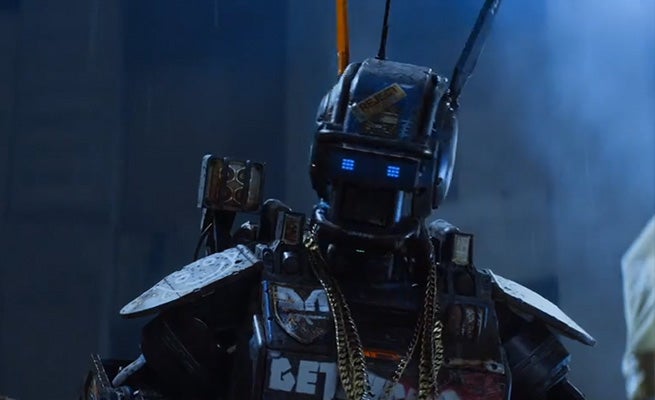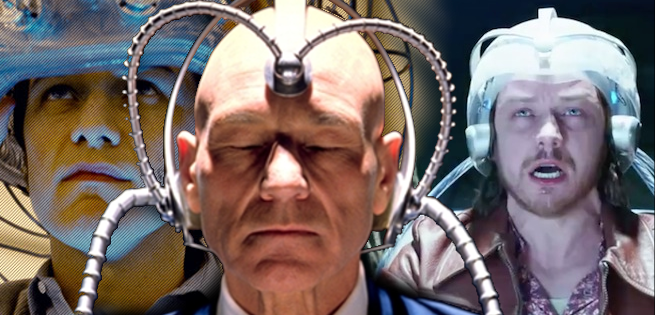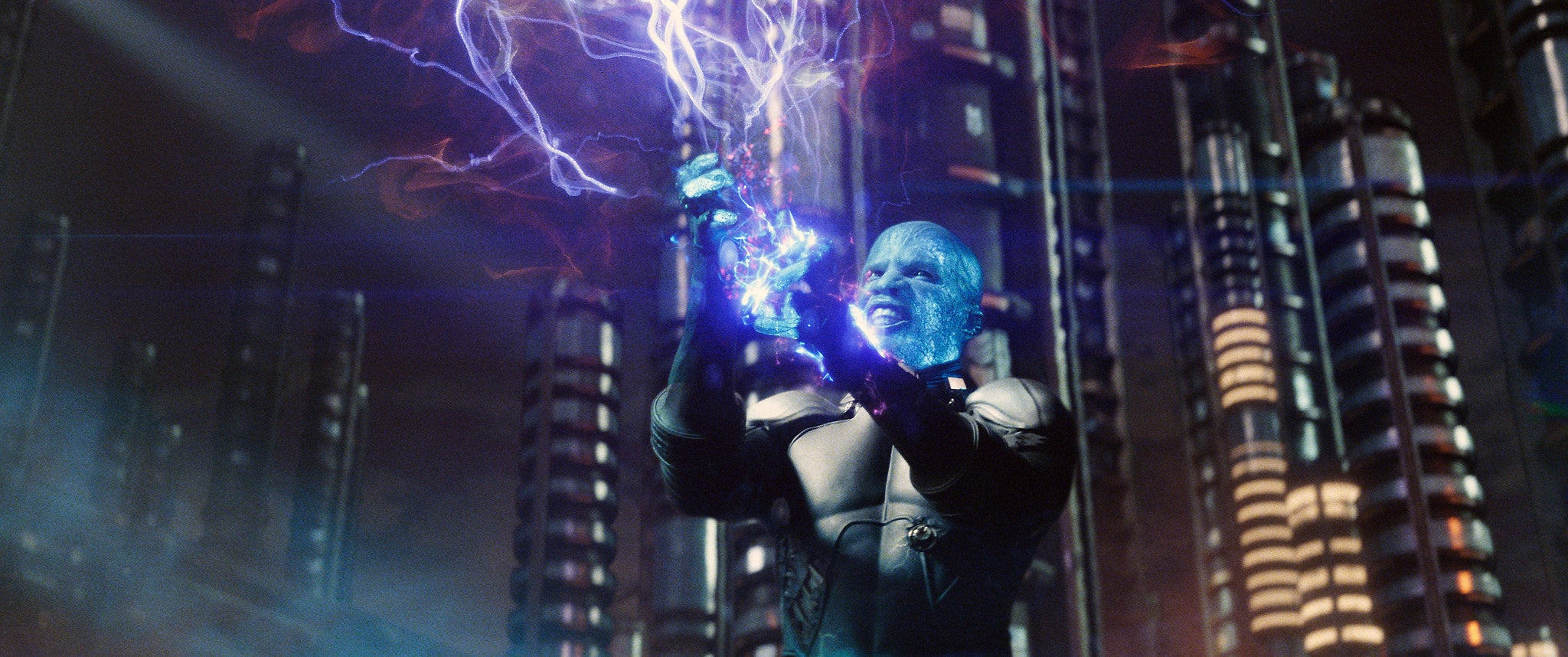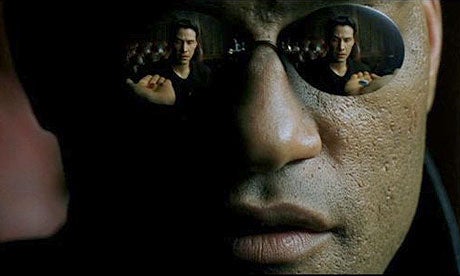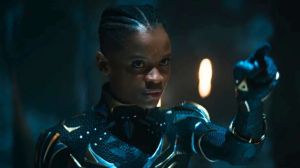
Today sees the release of Listening, a new film that explores a cool, cinematic landscape of computers and the mind.
Videos by ComicBook.com
The film comes to video on demand and a limited theatrical release today…and it’s a cool, trippy film that reminds us not every great idea is a good one. Check out the trailer:
In Listening, three brilliant grad students invent mind-reading technology that slowly begins to destroy their lives. The “brain-to-brain”, “telepathy” or “nanotube” technology featured in the film has been a hot topic recently in the science community and in the media in light of recent comments made by Facebook founder Mark Zuckerberg, who said, “One day, I believe we’ll be able to send full rich thoughts to each other directly using technology. You’ll just be able to think of something and your friends will immediately be able to experience it too if you’d like. This would be the ultimate communication technology.”
When writer/director Khalil Sullins began writing the film in 2010, the nanotube technology as far as he knew, did not really yet exist (at least not to the extent it does in the film). He wrote the story based on researching the topic on the internet driven by his fascination with science. He created a big breakthrough for his characters – to invent telepathy, and now, five years later, that breakthrough is happening in the real world.
It begs the questions: How close are we actually to being able to read each others minds or communicate telepathically? What would happen if this technology was placed in the hands of the government? What would that mean for our privacy?
It’s far from the first time we’ve seen brains and computers interacting on the big screen, though, and ComicBook.com teamed with Amplify Releasing, who are distributing the film, to — ahem — brainstorm a number of memorable films featuring such technology.

Later today, check back (and we’ll update this story with a link) for a chance to win the headset above, a screen-used prop from Listening.
CHAPPIE
One of our critic Brandon Davis loved Chappie, being quoted in one of the movie’s TV spots and writing at the time that “Chappie packs a shocking climax into a movie which focuses on growth, humanity, and innocence.”
Neil Blomkamp’s feature film, based on a short by the same name, used the personality and decency of its robot protagonist to tell a more human story than many featuring flesh-and-blood protagonists.
THE EMPIRE STRIKES BACK
At the end of The Empire Strikes Back, we get one of the most talked-about pieces of cybernetics in recent cinematic memory: Luke Skywalker’s interactive, artificial hand.
It’s apparently going to play a role in the forthcoming Star Wars: The Force Awakens, and it established a precedent for the way such prosthetics worked in the Star Wars universe.
In Empire, though, the idea of this kind of interface was relatively new and felt more “science fiction-like” than it does now, where we’re pretty close to being able to mass market prosthetics that respond to the user in almost this effective a manner.
There’s also, of course, Lobot — Lando Calrissian’s aide and Cloud City’s computer liaison officer, who has what looks like ’90s hard drives or something attached to his head.
THE X-MEN FILMS
…All of them.
You didn’t think we could make a list like this and not talk about Cerebro, did you?
Charles Xavier has had Cerebro since the first film, and while its importance and screen time has varied from movie to movie, every time it’s introduced it’s always a major set piece that helps to establish the feel of the film in question. Since everyone knows how it worked in the original trilogy, for instance, seeing how it functions in the First Class movies has helped gauge how close Xavier is to the “final draft” of the X-Mansion’s resident smart computer.
TOTAL RECALL
Hey, look, a twofer!
There are a few movies on this list where the whole plot of the film centers on the technology in question, and Total Recall is one of them. Without the brain-to-computer interaction, Total Recall would flat-out not exist.
And, yeah, it’s so inherent to the concept of the story itself that both films need the concept. Otherwise, it wouldn’t be Total Recall.
INCEPTION
Director Christopher Nolan’s films often play in ideas that take “crazy and experimental” right up to the edge of being corporate friendly and easily profitable.
In Inception, he managed to take concepts familiar to a number of indie films and make them into a major, Academy Award-nominated blockbuster film.
THE ETERNAL SUNSHINE OF THE SPOTLESS MIND
When the aforementioned Inception was getting accolades, The Eternal Sunshine of the Spotless Mind was what kept — if you’ll excuse the expression — popping into my head.
In this cult classic, a pair of lovers each use an experimental service that allows them to “forget” one another after a bad breakup — but much of the film takes place inside of the male lead’s brain as he decides that this was a terrible idea and that he doesn’t want to forget.
THE AMAZING SPIDER-MAN 2
Yeah, we’d rather forget that movie, too, but if we didn’t mention a superhero movie where the dude has a chip built right into his head to help him keep control of his powers, you know that’s what the whole comment thread would become.
And probably still will, as there are likely more examples. I don’t know if Ultron counts, per se.
TRANSCENDENCE
Taking cues from his mentor Christopher Nolan, first time director and Inception director of photography Wally Pfister took a more gruesome visual look than Inception did and managed to make Johnny Depp look even weirder than Tim Burton regularly does in this strange head trip of a film.
JOHNNY MNEMONIC
In this film based on the William Gibson story, Johnny (Keanu Reeves) is a data courier who has a secret stash of information implanted into his mind. However, the data will kill Johnny if he cannot retrieve it within 48 hours. Accompanied by physically enhanced bodyguard Jane (Dina Meyer), Johnny sets out to acquire the passwords he needs to save himself. Worse yet, he is hunted by gangster Shinji (Denis Akiyama) and businessman Takahashi (Takeshi), both of whom seek the data Johnny possesses.
…Hey, wait. That guy looks familiar.
Haven’t we seen him in a movie kind of like this before?
THE MATRIX
Never has the idea of computers interacting with the human mind been more central to the story. Films like Eternal Sunshine and Total Recall couldn’t exist without it, but The Matrix is literally premised on the idea that it happens to everyone, all the time.
Not only do we have that initial premise that everyday people are hooked into The Matrix to live their lives, but we get to see a secondary, kind of bootleg version that Morpheus and his people use to manually hook themselves back in when they’re looking for new recruits.

